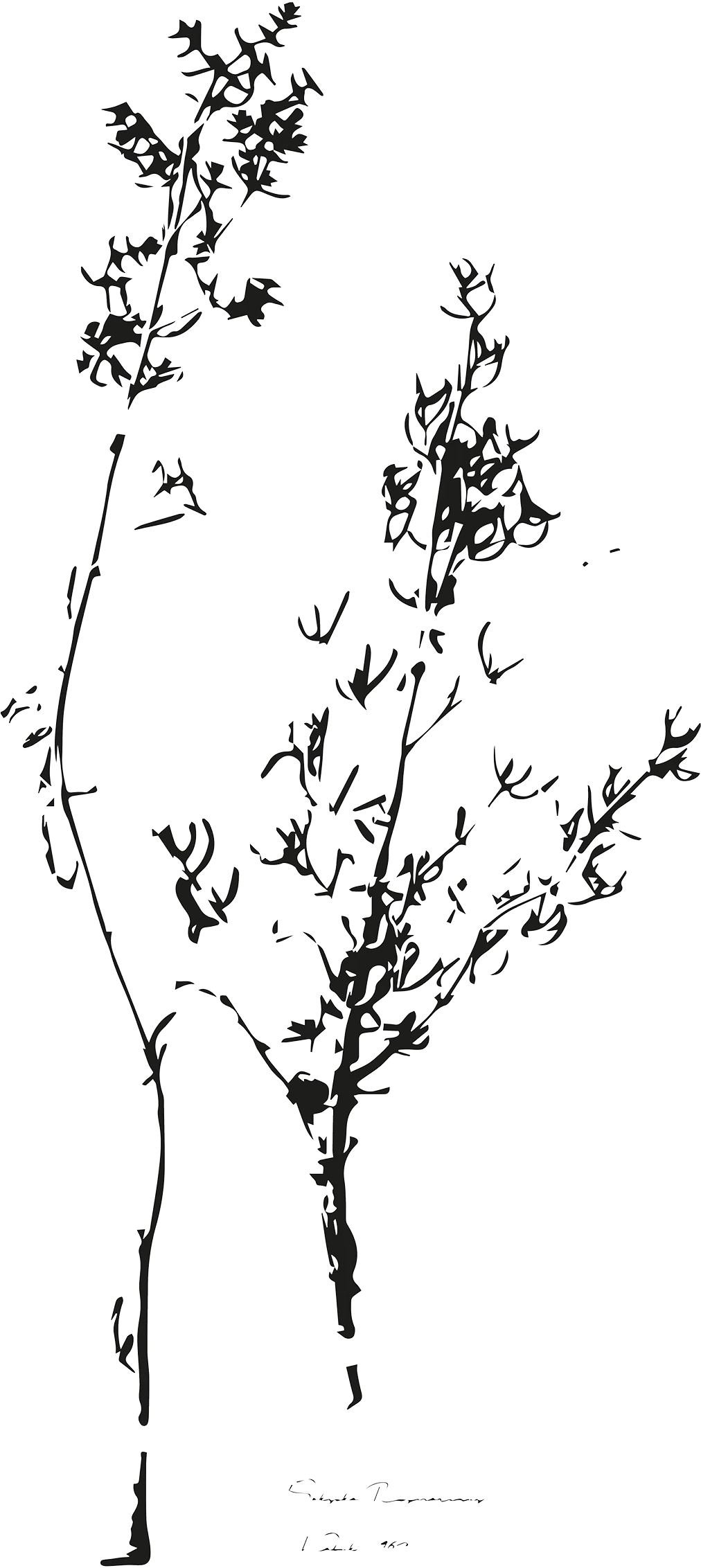EMERGENCY HOSPITALS AFGHANISTAN FUNDRAISER
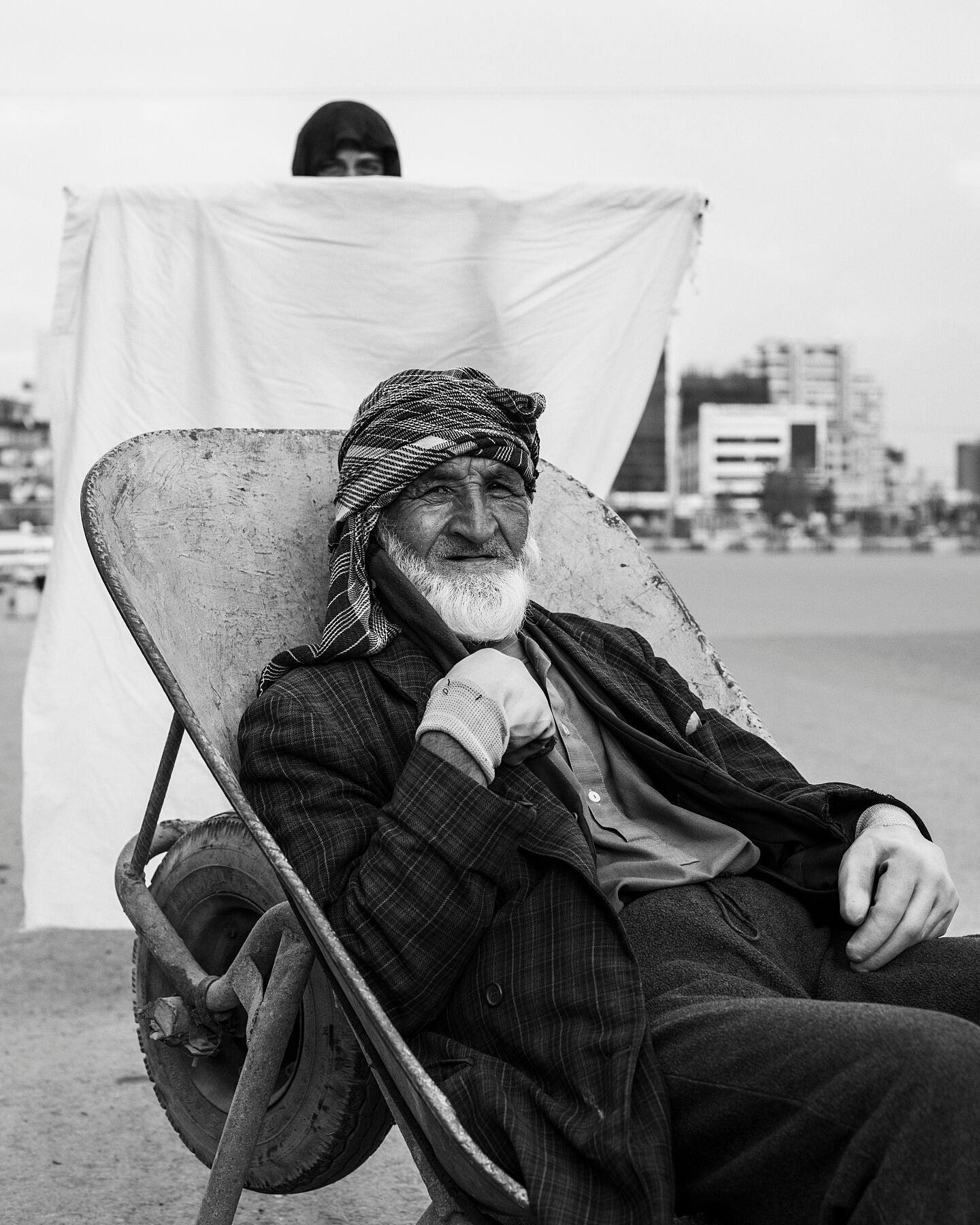
Karachai | Noor by ANDREW QUILTY
WHO ARE EMERGENCY?
EMERGENCY is a humanitarian NGO who have treated over 11 million patients since established in 1994. The NGO provides free, high-quality healthcare to some of the world's most vulnerable populations living in conflict zones, alongside building hospitals and training local medical staff. In Afghanistan, EMERGENCY centres provide critical treatment to millions across the country.
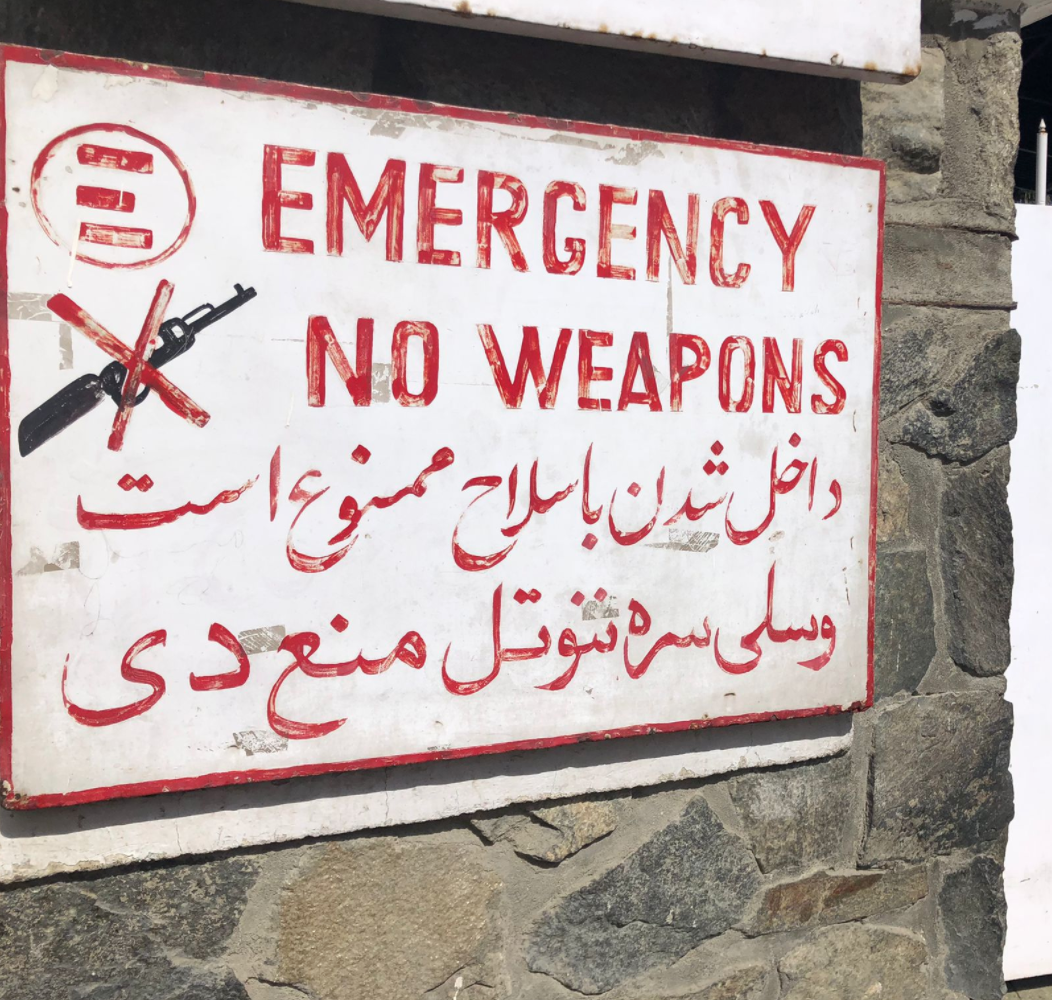
THE IMPACT
All profits from the print sale will go to EMERGENCY's crucial work in Afghanistan. Donations will fund specialist training of local nurses & doctors, who will go on to treat thousands of patients in need across the country. As the last international troops leave the country, this is more important than ever. The Taliban are rapidly gaining ground and the highest number of civilian casualties have been recorded from the May-to-June 2021 period since the United Nations began monitoring these casualties in 2009. Many of the civilian casualties documented in the report are people who have been treated in EMERGENCY’s wards. “The situation has deteriorated sharply since the beginning of May. Fighting has intensified in almost all provinces of Afghanistan and we are receiving many more patients than normal.” Marco Puntin, Country Director for EMERGENCY in Afghanistan.

From the profits raised from the print sale we have been able to donate over $123,000 to EMERGENCY hospitals. These are crucial funds that will help save lives over the bitter winter ahead.
Although Afghanistan has faded from the headlines, Afghans face a critical situation daily. Despite extremely challenging circumstances, all of EMERGENCY’s hospitals and first aid clinics remain open and fully operational. They need our support now more than ever. Stay tuned for our 2022 print sale in support of their amazing work.
DISCOVER
Scroll down to see some of the incredible prints and stories that were featured.
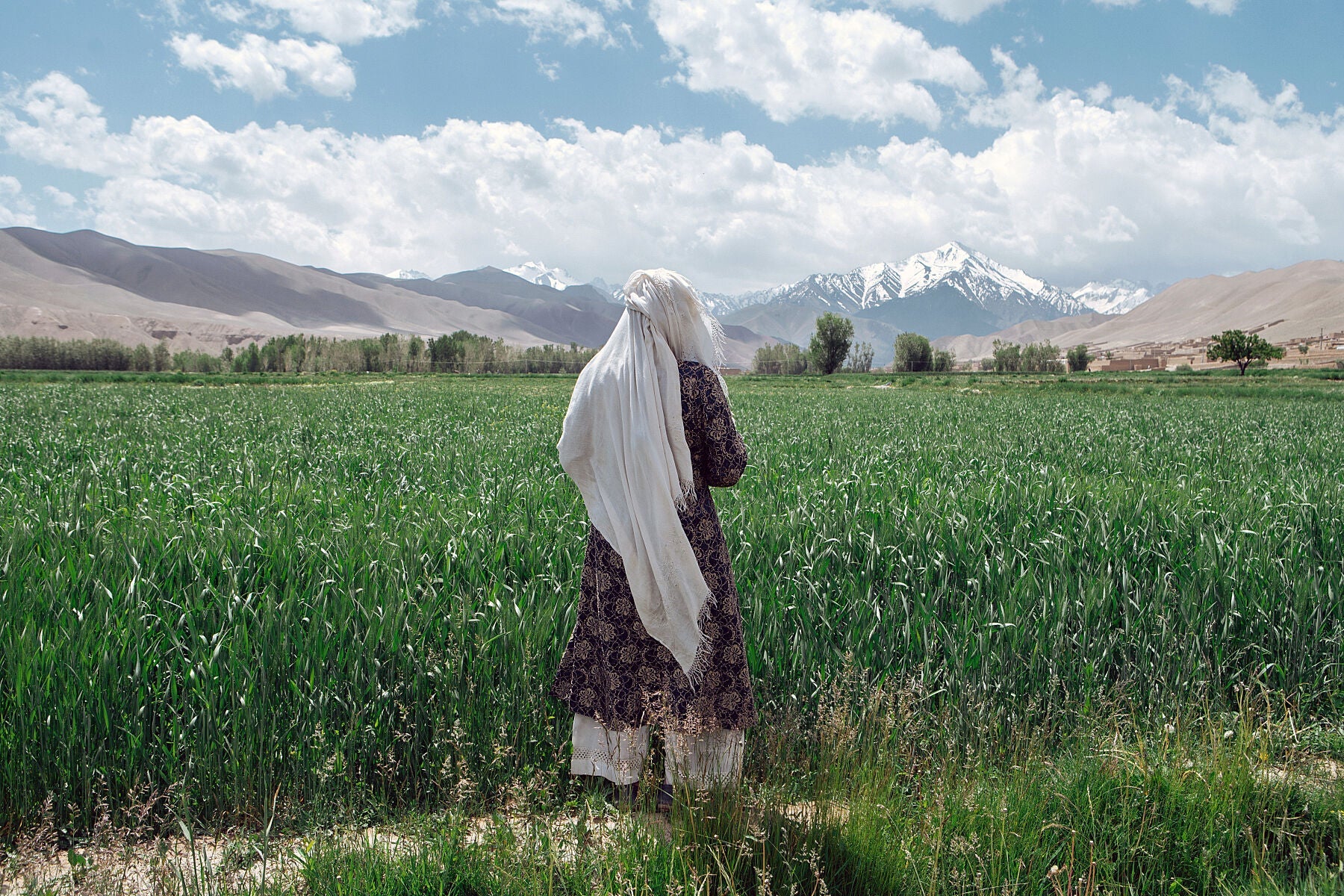
SOLMAZ DARYANI
Afghan woman in lush Fields of Bamiyan.
"Afghanistan is one of the most vulnerable countries in the world to climate change, and one of the least equipped to handle what’s to come. Women are among the most severely affected in Afghanistan as they rely on natural resources sensitive to changes in climate for their daily tasks, such as household water supply."- Solmaz Daryani
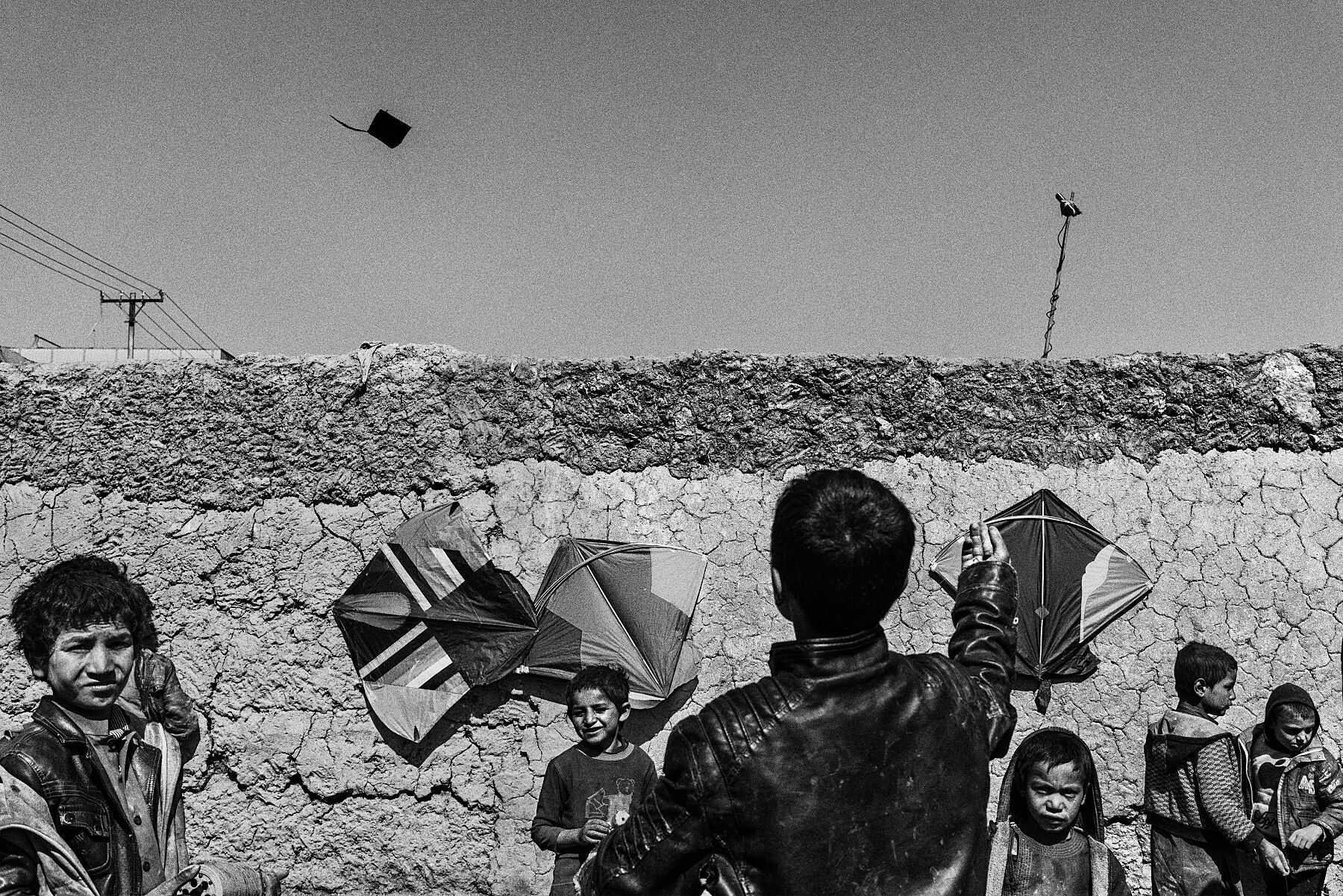
LORENZO TUGNOLI
Children play with kites in Polishina informal settlement.
"During the long winter of Kabul the unpaved roads of the camps turn into muddy alleys. Heating the makeshift houses is also hard, often refugees collect wood in the garbage to warm up. Almost two-thirds of the Afghan population lives in areas directly affected by conflict and many families took the tough decision to relocate to refugee camps near urban centers. According to UNHCR data, 340 thousand people were forced to flee from their homes in 2018 setting the total of internal displaced people to a record number of almost 2 million."- Lorenzo Tugnoli
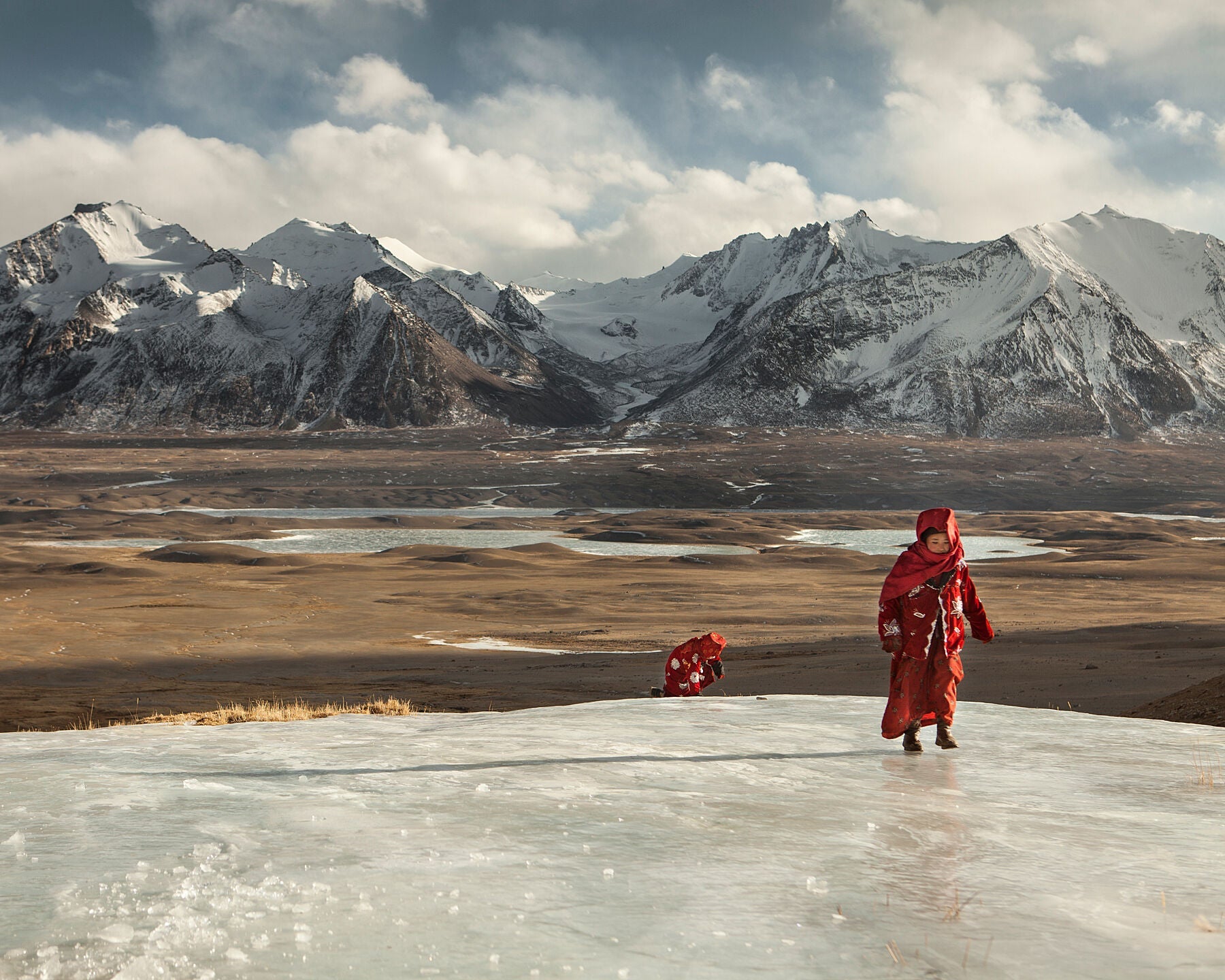
MATTHIEU PALEY
Ech Keli iii.
"Two young Kyrgyz girls walk up a frozen river to fetch water at the spring on the edge of camp in Ech Keli camp, Afghan Pamir. It was my second winter expedition into Afghanistan’s Pamir mountains. A five-week assignment in rough conditions and extreme cold. We trekked for three weeks, working on a film documentary on the isolated Kyrgyz community." - Matthieu Paley
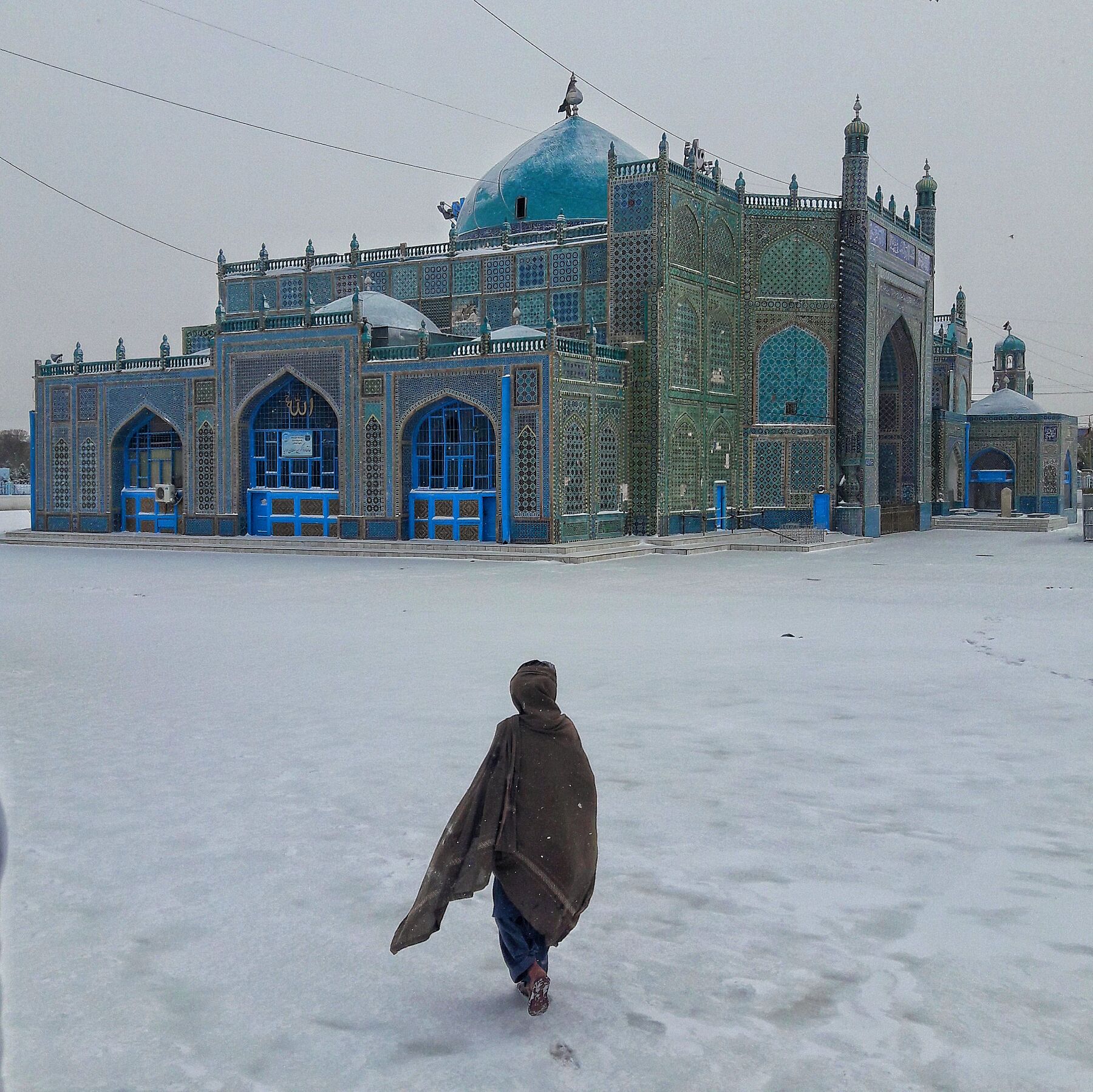
FARSHAD USYAN
Winter Blues.
"The blue mosque or Hz.Ali shrine in Mazar-i-sharif, Afghanistan. Many Afghans turn to amulet writers before finding a doctor to solve problems, especially their illness. Visiting these people, who are called "mullahs" and sometimes "Aqa or Agha" in Afghanistan, is not limited to finding a supernatural way to treat the disease, but also opening a business, creating love between couples who have conflict, and finding missing people and objects is another issue that men and women ask the talismanist mullahs for. Among the visitors of amulet writers, along with illiterate people and sometimes highly educated people too." - Farshad Usyan
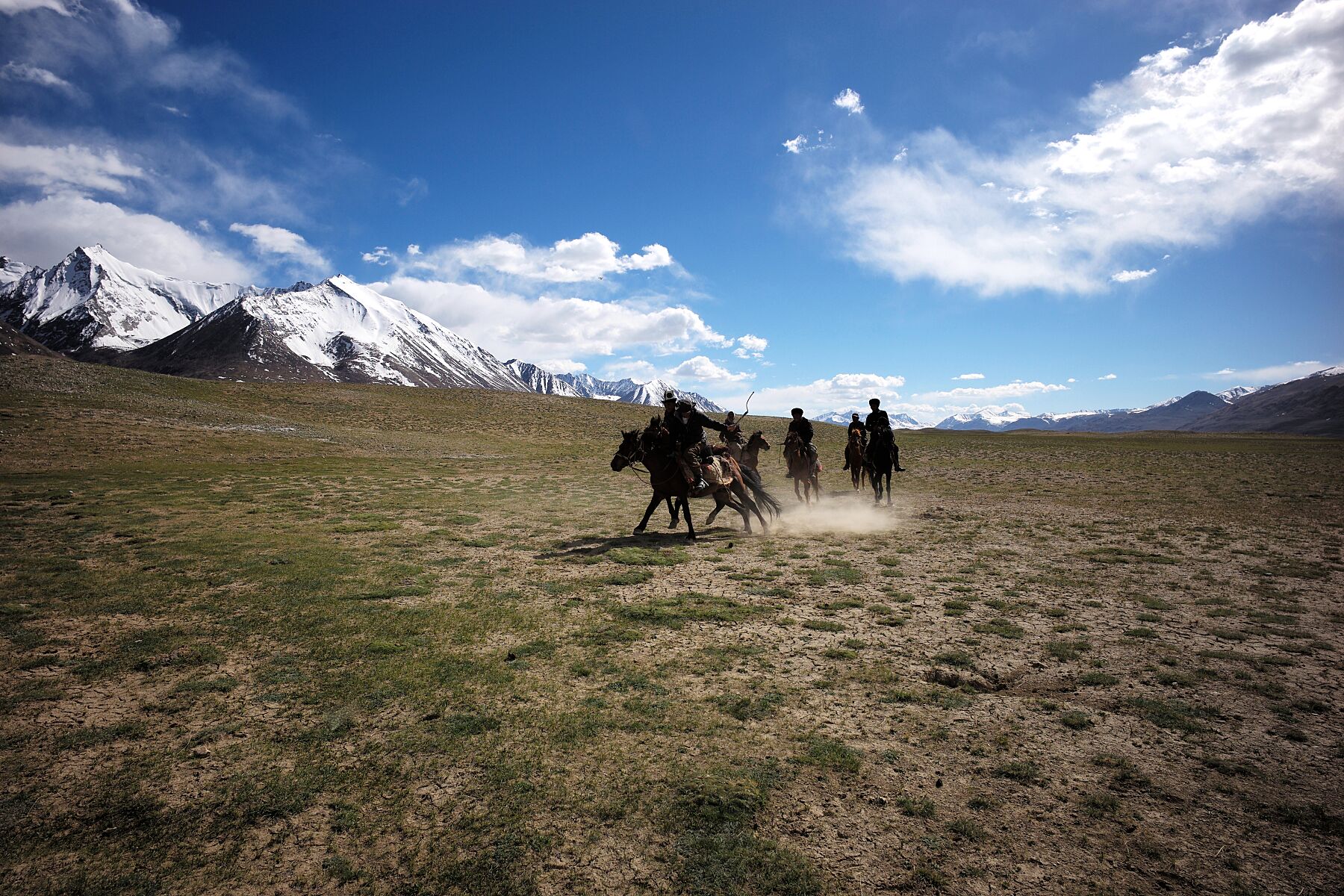
LEVISON WOOD
Buzkashi horsemen, Wakhan Corridor.
"The National Sport of Afghanistan, Buzkashi is similar to polo – except instead of a ball, the shaggy carcass of a sheep or goat is used. The rules at the game I witnessed appeared rather arbitrary and the aim seemed to be to simply grab the skin and run with it to the end of the field while the other players tried to grab it. Riders are frequently knocked clean off their horses and it can sometimes turn violent. The Wakhi inhabitants of this remote valley are talented horsemen, though, and learn to ride before they can walk."- Levison Wood
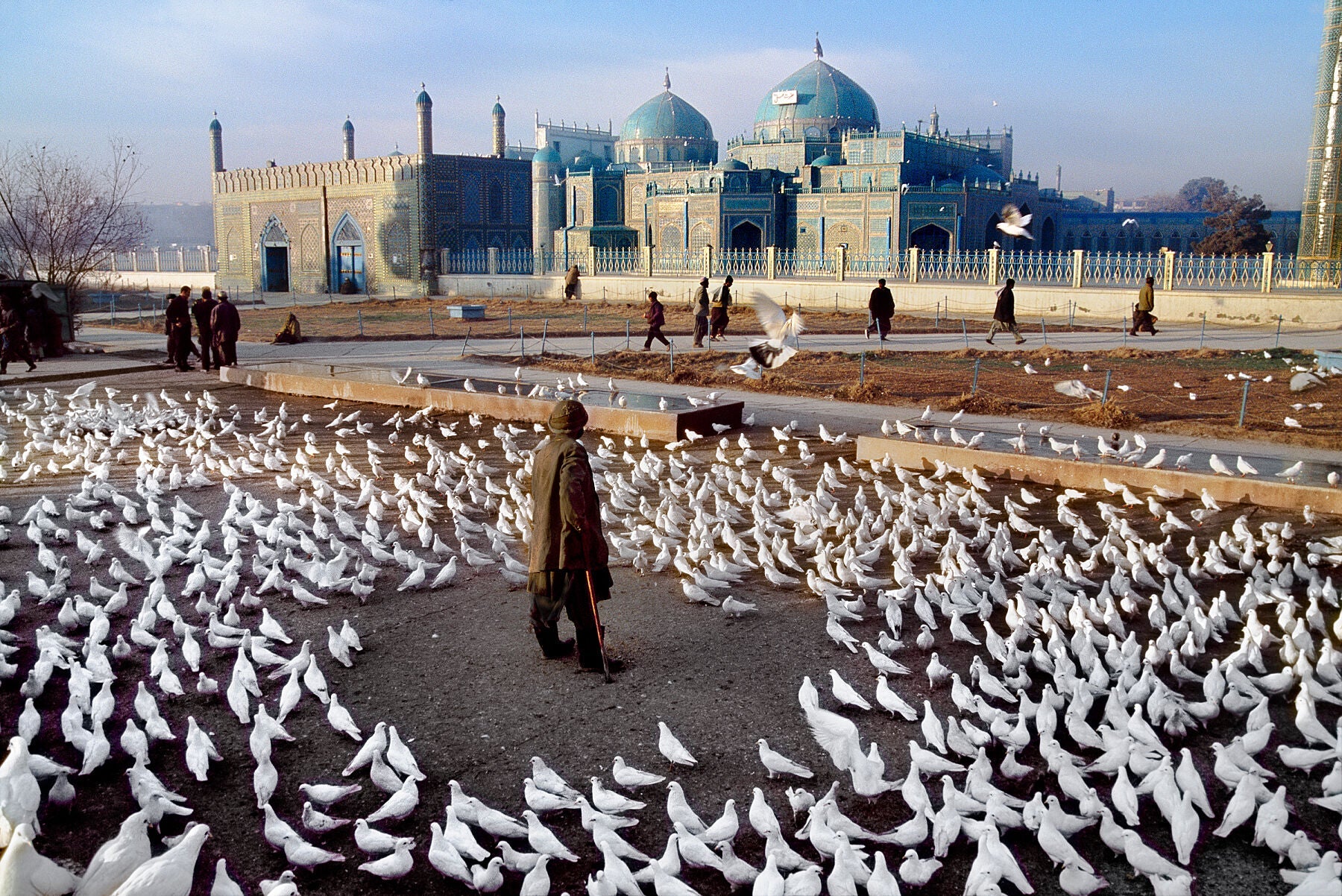
STEVE MCCURRY
Man stands in the middle of a flock of doves at the Hazrat Ali Mosque.
"A man stands in the middle of a flock of doves at the Hazrat Ali Mosque. Legend has it that the doves are pure white because of the sanctity of the shrine, and that if a dove with a speck of colour flies in and stays, it too will turn white as snow."- Steve McCurry
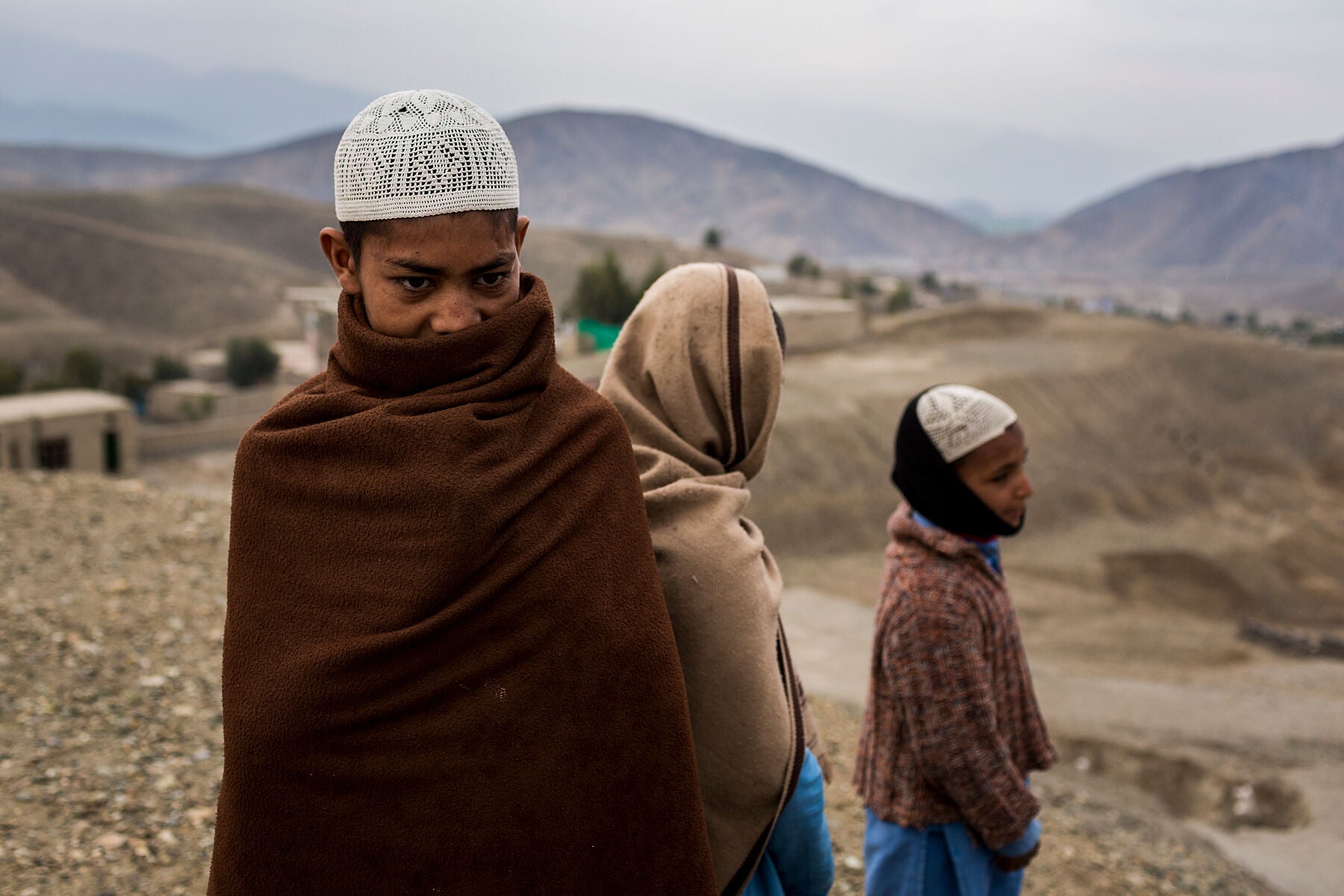
JIM HUYLEBROEK
Unsettled.
"Ayoub, Abdul Hassan and Loqman stand on a hilltop overlooking their new home in the mountainous area on the border between Nangarhar and Kunar provinces. They are Afghans born in Pakistan, their families forcefully returned to the country of origin. “Nobody has jobs here, there is no hospital, the city is far away. All our brothers who are old enough have joined the military. There was no other option,” Ayoub said. February 2017 "- Jim Huylebroek




